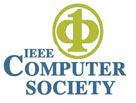Call for Papers
The modern digitized world has led to the emergence of a new paradigm on global information networks and infrastructures known as Cyberspace and the studies of Cybernetics, which bring seamless integration of physical, social and mental spaces. Cyberspace is becoming an integral part of our daily life from learning and entertainment to business and cultural activities. As expected, this whole concept of Cybernetics brings new challenges that need to be tackled.
To address these emerging challenges, there is a need to establish new science and research portfolios that incorporate cyber-physical, cyber-social and cyber-mental technologies together in a coherent manner to deliver the vision of Cyberspace. This is the aim of the 2017 IEEE Cyber Science and Technology Congress (CyberSciTech 2017) to offer a common platform for scientists, researchers and engineers to share their latest ideas and to exchange the latest developments and outcomes in their research and technologies, with a broad scope of cyber-related science, technology and application topics. CyberSciTech 2017 covers four main research tracks including but not limited the following areas or topics.
Track 1: Cyber Science and Fundamentals
Cyberspace Structure & Property, Cyber-world Constituents & Evolution, Cyberspace & Cyber-world Modeling, Cyber-enabled Hyper-connection, Cyber Visualization, Web Science, Internet Science, Data Science, Cyber Physical Science, Cyber Social Science, Cyber Human Science, Cyber Life Science, Cyber Physics, Cyber Biology, Cyber Ecology, Cyber Dynamics, Cyber Security
Track 2: Cyber Physical Computing and Systems
Cyber-Physical Systems, Cyber-Physical Interface, Cyber-Physical Hybrid Intelligence, Ambient Intelligence, Intelligent Transportation Systems, Networked Robots, Virtual Reality, Augmented Reality, Wearable/Bearable Computing, Cyborg, Internet of Things (IoT), Smart Object, Smart Sensor, Smart Environment, Smart City, Smart Agriculture, Smart Manufacture, Smart Healthcare, Smart Service, Smart Cloud, Smart World
Track 3: Cyber Social Networks and Computing
Cyber-Social Networks, Cyber-Sociology, Cyber-Culture, Cyber-Economy, Cyber-Social Evolution, Cyber-Social Sensing, Cyber-Social Simulation, Cyber-Behavior Analytics, Cyber-Crowdsourcing, Cyber-Trust, Cyber-Privacy, Cyber-Rights, Cyber-Crime, Cyber-Law, Cyber-Telepathy, Anticipatory Computing
Track 4: Cyber Life, Intelligence and Mental Computing
Cyber-Brain, Cyber-Individual, Cyber-Life, Cyber/Digital Clone, Cyber-Human Evolution, Cyber-Psychology, Cyber-Cognition, Cyber-Affordance, Cyber-Human Analytics, Cyber-based Learning, Cyber-Thinking, Cyber-Creation, Affective Computing, Emotional Computing, Mental Computing, Sentiment Analysis
Important Dates
Regular Papers:
- Paper Submission Due:
July 10, 2017July 24, 2017 - Author Notification: August 20, 2017
Workshop/Special Session/Work-in-Progress/Poster Papers:
- Paper Submission Due: August 15, 2017
- Author Notification: August 31, 2017
All Papers:
- Author Registration Due: September 17, 2017
- Camera-Ready Manuscript Due: September 21, 2017
Submission and Publication
Authors are invited to submit their original work that has not previously been submitted or published in any other venue. Submitted papers need to abide by IEEE Computer Society formats. Final papers must be formatted accordingly (see “IEEE Manuscript Template” and submitted via EDAS https://edas.info/newPaper.php?c=23118).
Regular, work-in-progress, workshop/special session, poster (short) papers all need to be in IEEE CS format and submitted following the same instruction on the CyberSciTech 2017 congress web site. A regular, workshop, or special session paper should be between 6-8 pages. A work-in-progress paper should be between 4-6 pages whereas a poster (short) paper should be between 2-4 pages.
All accepted papers in the regular, work-in-progress, workshops, special sessions and posters will be published in an IEEE Computer Society proceedings (EI indexed). Extended versions of selected excellent papers will be considered for publication in special issues of prestigious journals http://cyber-science.org/2017/si.html.



